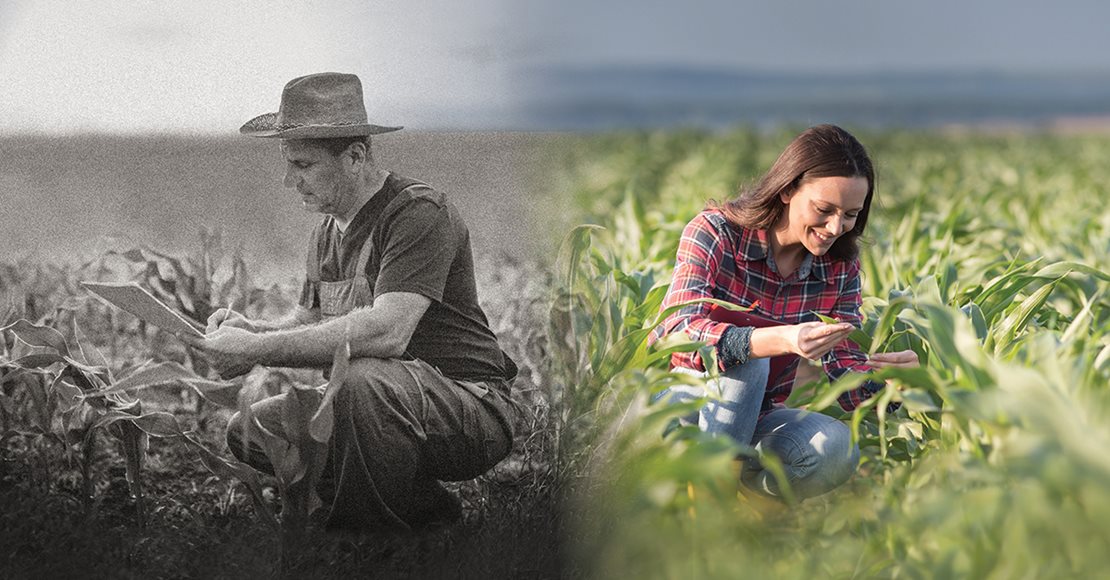
How to prepare for ownership change
There are a lot of ways to get farmland, but did you know that inheritance is actually one of the largest? More than one-third of farmed acreage in the United States was inherited or gifted to its current owners. This is why succession planning for farmers is so critical. But how can you ensure you’re setting up the farm transition process properly so that it can get passed on? Read on for an overview of everything you’ll need to consider!
Essentially, succession planning is the transfer of a farm business or family farmland to the next generation that requires putting together a plan for what will happen with your property when you retire or decide to pass it on. It’s an integral part of estate planning, but it’s even more important when your farm or ranch is part of your livelihood. If your family depends on your farmland, they also depend on you to have a good farm succession plan!
The most recent Iowa State University Farmland Ownership and Tenure Survey identified that approximately 60% of Iowa farmland is owned by individuals over the age of 65, and 35% over the age of 75. And of the Iowa farmers who responded to the USDA NASS 2019 survey, only 40% have identified a successor. Many find the process daunting and want to spare themselves the emotional aspect, therefore avoid creating a plan altogether.
This can lead to significant implications for when and how farmland is transferred to the next generation and why succession planning for farmers is so critical. There are quite a few factors that will play a part in how you approach your succession planning. But primarily, you’ll want to focus on how many descendants you have, whether they want to farm, and how you want your farm to be run when you move on. It is important to determine if the farm asset is also an inheritance asset as this will open the door to discussions on financial feasibility.
Families with only one child have the most convenient opportunity, as they can simply go through the process of making them the recipient. This is particularly easy if your child works the farm with you and is ready to continue the family business! However, if you have multiple heirs for farms, things get tricky. There are a few different ways you can pass along your land, but they depend quite a bit on your family dynamic.
Typically, if you want the farm to stay with the family, you’ll want to pass it to heirs who are willing to keep working the farm. Not everyone who grows up farming wants to stay there. This can cause trouble with non-farming relatives. People often pass their non-farming assets onto these relatives and pass the farm and land to those who wish to continue farming. Equal distribution of farm assets as inheritance assets can increase the likelihood that the farm assets will not be available for the on-farm heir. There are options to allocate other non-farm property to the off-farm heirs, such as life insurance, retirement accounts, or vacation property. You can also figure out a strategy to split the land, or perhaps to have one relative make a structured farm purchase from the others in an inheritance buyout. These can help mitigate hurt feelings while still keeping the land within your family.
Figuring out good succession planning for farmers can be complicated, particularly when it comes to navigating the legal waters around inheritances. Thankfully, it’s easy to get help!
Wills, trusts, lifetime gifting, purchasing, or any combination of these are all options to take into consideration. Begin by compiling a list of assets that you can share with a trusted Lincoln Savings Bank advisor, then meet with an attorney, accountant or other professional who can help you identify which path is best for you. These professionals will evaluate your individual goals and create a strategy that fits your family dynamics and needs.
If you’d like to figure out how to prepare your estate and learn more about passing down family farms, get in touch! Our LSB professionals will be happy to assist you with your needs and figure out a strategy for handling your estate. We want your family to succeed and continue farming for generations to come!

